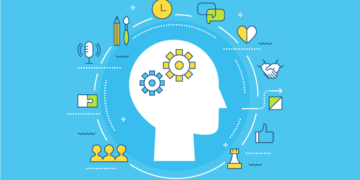More..
- 7 celebs with their scandalous sex tapes
- Ladies! 10 things your man should never make you do, no matter how much you love him- Be wise!
- How to know a runs girl in Nigerian universities (Must See)
- Is this true about president Jonathan, did he really do this? – This is bad!
It wasn’t until fairly recently, however, that widespread attention had been given to the connection between physical and mental health. Today, the number of people suffering from mood disorders and neurodegenerative diseases such as Alzheimer’s Disease (AD) is on the rise.
In fact, according to the National Institutes of Mental Health, 28.8% of the population will suffer from an anxiety-related disorder and 16.5% of the population is likely to experience some form of depressive disorder in their lifetime. Moreover, according to The Alzheimer’s Association, one in eight people aged sixty-five and over has AD. AD has been termed as Type 3 Diabetes because the brains of individuals with this disease are deficient in and exhibit resistance to insulin. Individuals with Type 2 Diabetes are also at an increased risk of developing AD.
Despite the fact that some people may be at an increased risk for developing diseases of the brain, one of the best strategies to keep it performing at its peak is to maintain a healthy lifestyle.
Here are five, simple tips for a healthier body and brain:
1. Eat a balanced, whole-foods diet. A diet high in plant foods like vegetables and fruits provides a wealth of vitamins and minerals required to manufacture neurotransmittersand phytochemicals that keep our cells strong and alert, protect our DNA and other cell structures from oxidative damage. Vegetables and fruits can also reduce or prevent inflammation, which is important for healthy brain function. To ensure you’re getting a variety of phytochemicals, eat from the colors of the rainbow on a daily basis.
Protein, especially amino acids such tryptophan and tyrosine are necessary for building brain chemicals. These can be found in animal products such as meats, eggs and dairy products as well as nuts, seeds, legumes and whole grains. Lastly, include the right kinds of fats in your diet such as saturated fats found in butter and coconut oil and monounsaturated fats in fatty fish, olive oil, avocados, walnuts and hempseeds. They are essential for maintaining healthy cell membranes which are vital to brain cell signaling.
Navigate using pages below






































Discussion about this post